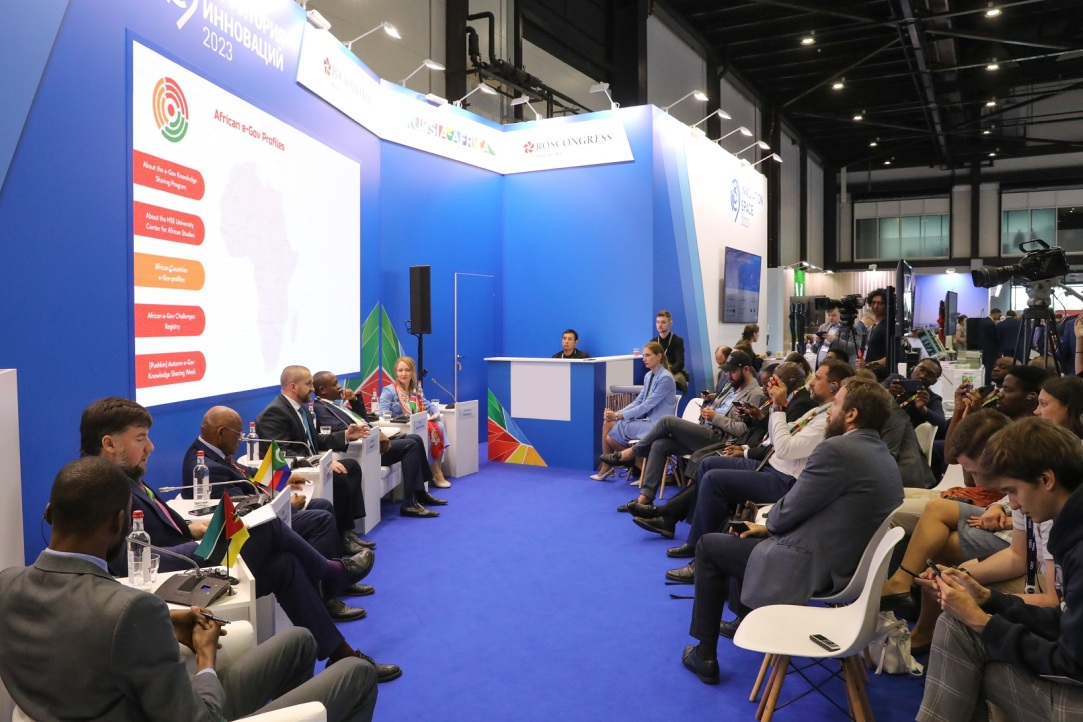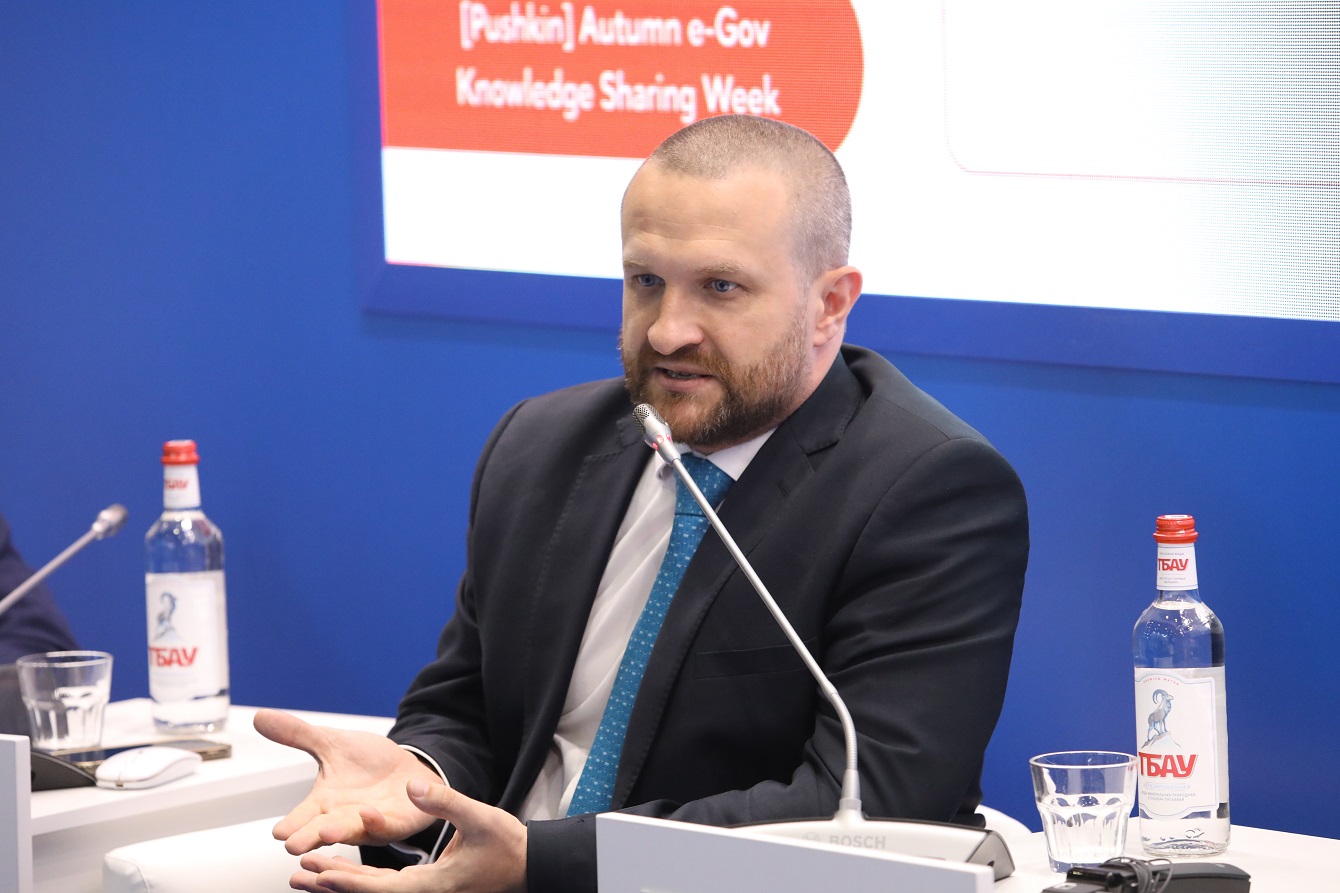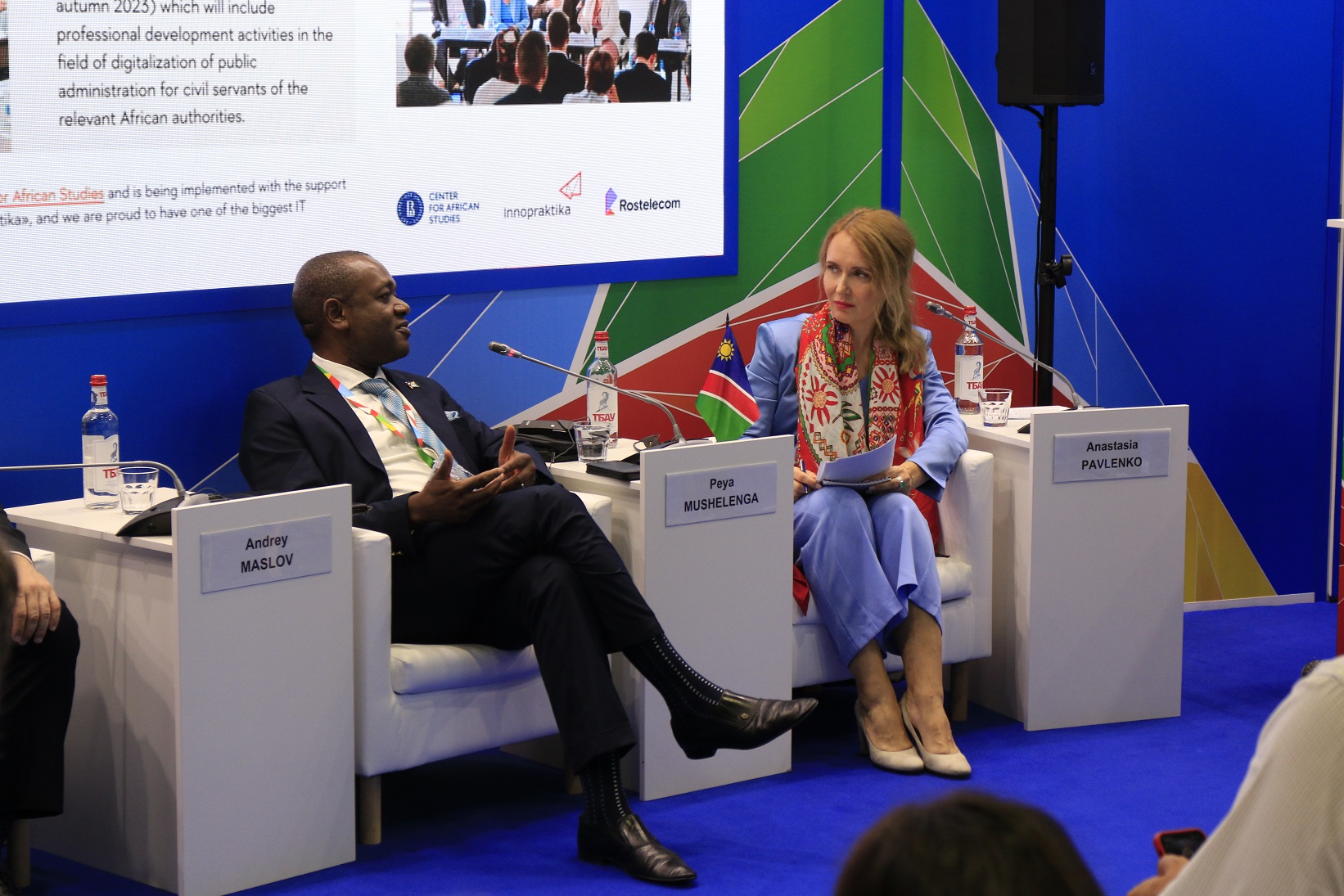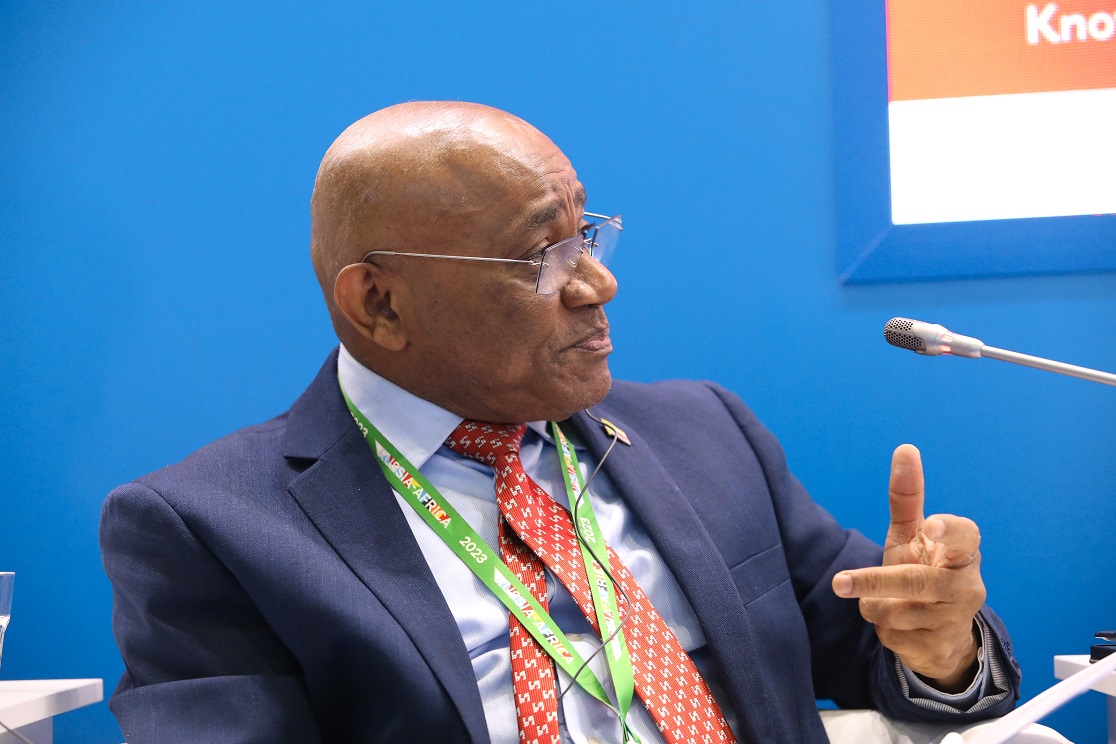Russia to Help Africa with Public Service Digitalisation

Russian and African civil servants are to exchange experience in the field of digitalisation. The programme was presented by HSE University’s Centre for African Studies in cooperation with the Innopraktika company. The programme organisers are also ready to carry out educational events in any country on the continent.
In recent years, Russia has gained a leading position in international rankings of e-government development and has managed to significantly increase its sovereignty in the digital sphere. African countries, where the digitalisation of public services is currently taking place at a high pace, show interest in the successful Russian experience.

HSE University’s Centre for African Studies and Innopraktika presented a knowledge exchange programme in the field of public administration digitalisation. It will start this autumn in St Petersburg, said Andrey Maslov, Director of HSE University’s Centre for African Studies and Programme Coordinator, at a round table titled ‘Competence Transfer: Exchange of Experience in Digitalisation of Public Administration.’ The event was held at the site of the second Russia-Africa Economic and Humanitarian Forum.
The discussion was moderated by Anastasia Pavlenko, Deputy Executive Director and Director for Strategic Partnerships at Innopraktika. She highlighted Russia’s leading positions in international e-government development ratings, which are due to the high level of development of Russian digital services. Anastasia Pavlenko emphasised the importance of creating independent digital government systems in African countries to increase sovereignty and the significant potential for the exchange of experience and knowledge between Russia and Africa in this area.

The programme for the exchange of knowledge in the field of public administration digitalisation will be attended by civil servants and chief government officers of African countries authorised to regulate and develop digital public administration. The training will include lectures, seminars, problem-oriented case studies, and other educational events organised by Russian and African experts. The participants will discuss theoretical and regulatory aspects of the implementation of e-government services and technological solutions. Particular attention will be paid to in-demand topics for African countries: legal regulation, infrastructure and security, electronic services for the population, and the formation of a digital urban environment.
Andrey Maslov said that the programme organisers are ready to carry out educational events in any country in Africa for audiences that gather following the recommendation of the relevant ministry or embassy.
Souef Kamalidini, Minister of Post, Telecommunications and Digital Economy of the Comoros, named the significant benefits of public administration digitalisation for the state, citizens, and foreign contractors. He said that due to the introduction of digital technologies, the customs service of the Comoros has tripled the speed of freight processing over the past two years.

‘The experience gained in the Russian Federation in the development of information and communication technologies and in the field of public administration digitalisation will definitely serve as a model and a good example for the Comoros. I think it will be useful for all African countries. Although African countries are at different levels of development, the reality is the same for all: investments are needed, knowledge is needed,’ Mr Kamalidini emphasised.
Peya Mushelenga, Minister of Telecommunication Technologies of Namibia, spoke about the priority areas for his country in this sphere—the introduction of electronic services in the field of taxation, customs, healthcare, justice, and civil registration. He also noted the prospects for the development of e-education.
‘In the course of our activities, we got acquainted with examples of countries that have reached a good level of development as regards digital government services. We hope that we will be able to put into practice the experience of these countries, including Russia,’ the minister said.
Igor Lyapunov, Senior Vice President for Information Security of Rostelecom and General Director of Rostelecom-Solar, briefly described the key areas of activity and achievements of PJSC Rostelecom and Rostelecom-Solar. He also stressed that today, ‘in this difficult time, Russia shows good progress towards integrating digital services into public administration and ensures their safe use.’ ‘In the last year and a half, we have managed to replace almost 90% of Western technologies (which 10 years ago were the basis of digital public services) with Russian databases, virtualisation platforms, and cyber defence. This is a unique experience that has become the foundation of digital sovereignty,’ Igor Lyapunov said.
Programmes to increase digital literacy must be implemented at the state level, says Orlando Mazuze, General Manager of MaCh Digital, a company in Mozambique. In his opinion, Russia and African countries have a huge potential for developing cooperation in this area.
Adamu Garba II, President of the Nigeria-based company IPI, emphasised the importance of data protection and building a sovereign digital system of public administration that takes into account the culture and values of a particular country.
‘Right now, probably only Russia, Iran, and China have digital sovereignty,’ he stressed.
See also:
‘A Bridge Connecting Russia and Africa’
The HSE Centre for African Studies has marked its fifth anniversary. It was established to support Russian companies and government bodies in their engagement with countries across the continent and, over the years, has proved its effectiveness and uniqueness. A ceremonial event to mark the centre’s anniversary was held at HSE’s Cultural Centre.
Showcasing the Diversity of African Heritage at HSE University–St Petersburg
On April 26, HSE University–St Petersburg held the African Festival. Currently, there are more than 100 students from 20 African countries at the university, most of whom showed up for the first festival of its kind this April. HSE's African students proudly presented their traditions, cultural values, vibrant dances, and unique landmarks of their countries. It was an unforgettable journey into the colourful culture and multifaceted heritage of Africa.
HSE Days in Ghana: How the University Attracts Talents and Expands Cooperation with Africa
In March 2025, HSE Days took place in the Ghanaian capital of Accra, the cultural hub of Kumasi, and the Bono East region. Representatives of the university awarded participants of the HSE International Olympiad (HSE INTO 2025) and spoke to local school pupils and university students about educational opportunities, scholarship programmes, and application pathways to HSE University.
HSE Presents an Analytical Handbook on Africa for African Leaders
The HSE University Centre for African Studies has presented an English-language expert-analytical handbook titled ‘Africa 2025: Prospects and Challenges.’ For the first time, Russian experts have prepared a comprehensive work aimed at an African audience rather than Russian readers. The handbook incorporates a significant amount of new data and introduces new approaches for assessing development prospects. The presentation took place in Sochi on November 9, 2024, during the First Ministerial Conference of the Russia–Africa Partnership Forum.
HSE Experts Help to Implement Science and Technology Foresight in Africa
The population of African countries is growing so fast that the continent is likely to play a significant role in global development. However, the socio-economic situation in African States remains dramatic. Access to high-quality education, the development of science and high technologies are crucial in addressing these challenges. Professor Alexander Sokolov, Head of the UNESCO Chair on Future Studies at HSE University, spoke at the International Forum of UNESCO Chairs and Partners ‘Transforming Knowledge for Africa’s Future.’ The event took place in Addis Ababa, Ethiopia.
Keeping Dialogue Open with Africa: Rectors of Regional Universities Visit HSE
At the end of April 2024, HSE University hosted an international conference ‘Export of Russian Education to Africa: Challenges and Opportunities.’ The event was attended by leaders of universities from Mali, Burkina Faso, Burundi, Niger, and Guinea. Together with their Russian counterparts from government bodies, scientific and higher educational institutions, they outlined paths for the development of humanitarian relations and agreed on possible cooperation in the face of a changing world order.
HSE Hosts Round Table ‘Africa and BRICS: Reflections and Prospects’
On April 15, 2024 HSE University hosted a roundtable discussion ‘Africa and BRICS: Reflections and Prospects.’ The event featured leading experts from the South African Institute of International Affairs (SAIIA) Steven Gruzd and Gustavo de Carvalho and was moderated by HSE Vice Rector and Head of the BRICS Expert Council–Russia Victoria Panova.
‘We Have Promising Opportunities with Africa, and It Is Important to Foster Cooperation’
A Strategic Session focusing on cooperation between Russia and African countries in the sphere of higher education was held at HSE University's building on Pokrovsky Bulvar. The event was attended by representatives of HSE University, rectors of other Russian universities, and ambassadors and ministers of higher education from several African states.
Russia and Africa: Sharing Knowledge in Digitalisation
A school focusing on the digitalisation of public administration for civil servants from African countries was held in Moscow in December 2023. The school proved the high demand for Russian training programmes — representatives of 23 countries and 3 international organisations received certificates following advanced training.
Russian Government and HSE University to Help with Digitalisation of African Countries
The Russian-African Competence Transfer Programme in the Field of Public Administration Digitalisation in African Countries, which is being implemented by HSE University's Centre for African Studies, will be partially state-financed. The subsidy will be provided by the Russian government in accordance with the corresponding order signed on September 21.


